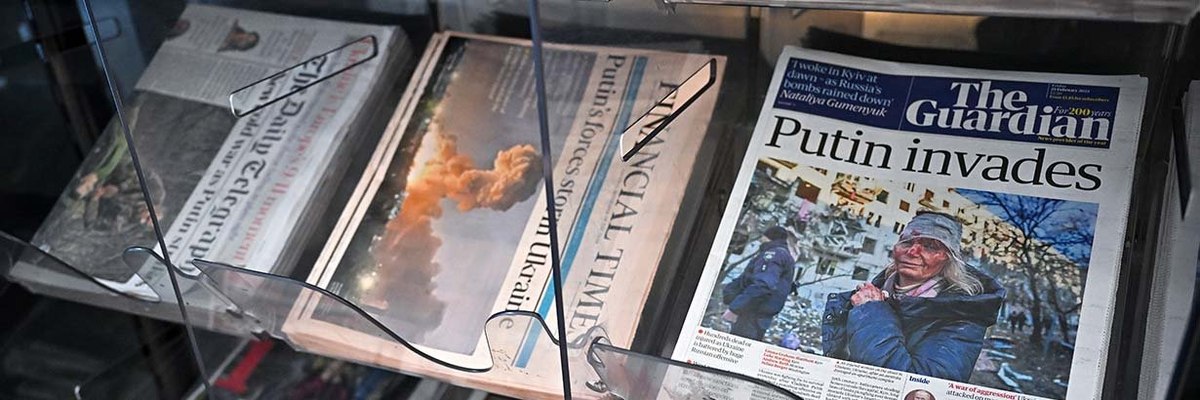The BBC and FT top the list, depending on how you measure it
A new YouGov survey of public opinion on 32 news outlets reveals which Britons consider the most trustworthy.
The organisation that the largest number of people trust is the BBC, with 44% of Britons saying they consider it “very trustworthy” or “trustworthy”. A further 24% deem news from the Beeb to be ‘neither trustworthy nor untrustworthy’, while 21% consider BBC news to be untrustworthy.
However, the BBC is not the outlet with the highest level of ‘net trust’ – that is to say, the number of people who trust a media organisation minus the number of people who distrust it.
That honour goes to the FT, with a net score of +30: 40% of Britons trust news from the FT, compared to 10% who distrust it.
The top broadcasters all place highly in the rankings, with ITV and Channel 4 receiving similar net trust scores of +28 and +27 respectively, with the BBC on +23 and Sky +13.
The Guardian is the highest ranking non-business newspaper in terms of the highest trust figure, at 33%, while the Independent is the national with the highest net trust score (+16, slightly ahead of the Guardian’s +15).
There is generally a clear distinction between trust in the tabloids and the broadsheets. Aside from the Independent and Guardian, The Times scores +14, The i +6, and The Telegraph on ±0 – tabloids tend to have a very negative net score.
In fact, the news outlet that Britons are most likely to consider untrustworthy is The Sun, with 59% of Britons saying so (including 36% who believe it to be “very untrustworthy”). The Sun also has the lowest net trust score, at -53.
Among the other national tabloids, The Star scores -50, The Mirror and The Daily Mail both -37, and The Express -31.
How does trust in media outlets differ between Conservative and Labour voters?
Comparing the levels of trust between Conservative and Labour voters reveals which outlets are the most divisive politically.
The largest difference applies to The Guardian. While the paper receives a net score of +41 among those who voted Labour in 2019, among Conservatives it scores -6.
Labour voters are also substantially more likely to trust news from Channel 4, although the broadcaster still receives a positive net trust score among both groups (+49 and +14).
Further outlets that Labour voters are more likely to trust than Tories by 20 net points or more include Private Eye, The i, The Independent and The New European (although in the case of the Independent, both groups of voters are more likely to trust that distrust them).
Those outlets that Conservative voters are most likely more likely to trust when compared to Labour voters are GB News and the Daily Mail, with the two outlets scoring 46 net points higher among Tories than Labour.
GB News scores +7 among Conservatives and -39 among Labour voters, while the Daily Mail tends to be distrusted by both groups, but to a greater extent among Labour voters (-62) than Conservatives (-16).
Other outlets that Tories trust more than Labour voters by a rate of 20 net points or more include The Telegraph and The Express.
The more Britons trust a news outlet, the more likely they are to consume news from it
It should not be a surprise that people who consume news from an outlet are those who tend to see it as trustworthy.
Taking the BBC as an example, 96% of those who consider it trustworthy say they ever consume news from it. This falls to 91% among those who consider it neither trustworthy or untrustworthy, and to 63% among those who consider it untrustworthy. (The figures for “frequent” consumption are 83% among those who see the BBC as trustworthy, 59% for those who saying it is neither trustworthy nor untrustworthy, and 27% among those who distrust the BBC).
As such, there is a general correlation between how frequently consumed a publication is on a national level and how many people trust it.
You can also read an identical study conducted by YouGov America on trust in US news outlets here
See the full results for broadcast outlets here and for print/digital outlets here
Photo: Getty







